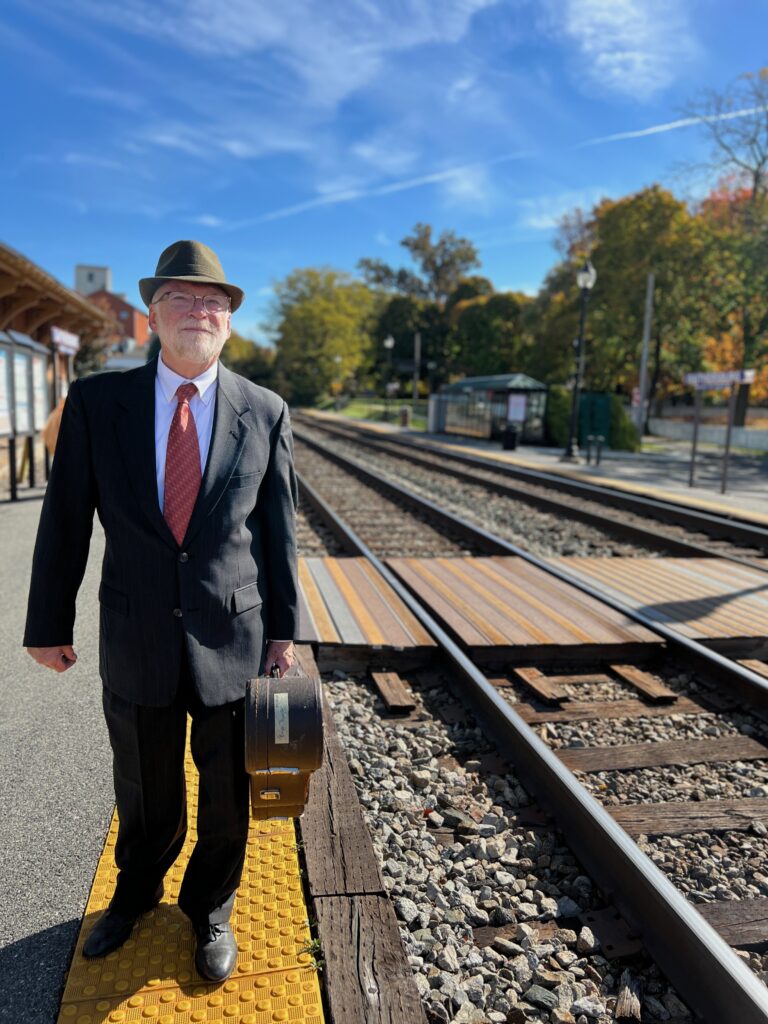
This blogger recently talked with the erstwhile artist Boyce Thompson about his new album, Unfinished Business, scheduled for an April 22 release on Plug Nickel Records. The self-loathing musician suffered through a series of psychological episodes that imperiled the release of his sixth album, his most personal release.
Q: I hear you suffered from severe imposter syndrome and nearly kept this release in the can.
BT: It’s true. I was listening to an early draft of the record and couldn’t stand the whole vibe, especially the sound of my voice. I felt like an absolute fraud and didn’t work on the songs for several months. I’ve been writing and recording songs since I was 14 but didn’t think I could go on.
Q: What triggered the reaction, was it the sound of your voice?
BT: I’d have to say that was most of it. I learned to live with my voice many years ago. It is what it is, and I justify singing by telling myself that no one else would sing these songs. I’m a songwriter, anyway; not a performer. But this was different. The whole thing seemed artificial, especially the notion that these songs belonged in a jazz idiom. Then, as I drilled down into the songs, I heard nothing but mistakes. The project overwhelmed me. I couldn’t finish it.
Q: I have no idea what you are talking about.
B: Well, the feelings went well beyond mere humility. I was staring into an abyss of self-doubt. I questioned why I had released the previous five albums. I listened to them briefly; they all seemed to suck. My streaming numbers were dismal. I was throwing thousands of dollars down the drain…I went to an open mic to try to bolster my ego.
Q: Did that work for you?
B. No, I struggled with the Bystander Effect. All these people were in the club, sitting at tables, drinking and talking while I played my heart out on stage. I’d take what I thought was a particularly inspired solo, and there would be no response from the audience. It was like I was playing for myself. No one was listening. I equated the experience with putting out this record. Would anyone hear it? No. So, why put it out?
Q: But you did release it. What was it that led to that outcome?
B: I don’t know. I re-recorded the vocals about 20 times until they didn’t sound like me singing. Only then was I satisfied with my performance. I worried that maybe I suffered from the Dunning Kruger effect, that maybe I overestimated my abilities despite limited competence. It didn’t help that Florence Foster was streaming on cable. Then I heard some current Top 40 hits in Cava and realized that what I’d done was much more authentic. I wasn’t an imposter after all.
Q: So, tell us a little bit about the album.
B: I don’t know where to start. There were so many moving parts. I recorded all the tracks — drums, bass, sax, etc. — in Apple Logic, then hired musicians all over the globe. They would send back “stems,” and I’d drop them into the project. The album has no processing besides a few effects here and there. The music sounds like it was recorded by a collective live in a studio, but all these talented individuals did their own thing in their own time. And they all instantly got the jazz vibe I was trying to create as if it were some kind of universal language. The album lineup originally included some R&B tunes. I dropped them to keep a consistent mood.
Q: When did you write these songs?
B: I wrote most of the songs during the pandemic, which accounts for some darkness. I had started several long before, 30 years before, and “finished” during the pandemic. That was the case with “The Fortune Cookie Lied,” which I drafted on a napkin in a Chinese restaurant in my 20s, and “Meet Me in St. Genevieve,” which I started but couldn’t finish in college. I was too heartbroken. None of the events in that song occurred. It’s all Brian Wilson-type fantasy.
Q: Some of these songs are pretty dark, especially “Lake Effect” and “The Last Hurrah.” What on earth inspired those dirges?
B: The idea for “Lake Effect” came to me during a Buffalo staycation. I was traveling between weekend home shows in Boston and Niagra Falls. Coming home didn’t make sense, so I spent four days at a Buffalo hotel and saw the sights. I tried to imagine what it would be like to be left behind in the Rust Belt. The Last Hurrah is my take on a friend’s experience; he decided to give it one last go with a girlfriend he had already broken up with. Who does that? I drew on existential philosophy to write the lyrics. No one, of course, will get that.
Q: Do you have a favorite song on the album?
B: Probably “Up Here on Art Hill.” The world has gotten so divisive. I was listening to pop songs from the 60s during the pandemic. I love the ones about magical things happening in the park. The idea was that these were free public spaces where people of all stripes could congregate. They celebrated the democratic ideal, something we seem to have forgotten. The song is as close to a political statement as I’ll ever get.